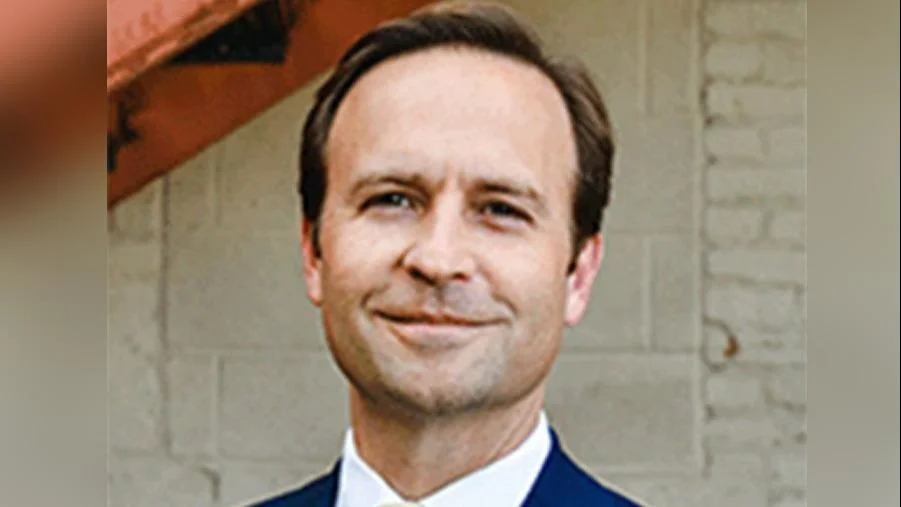Brian Calley President and Chief Executive Officer at Small Business Association of Michigan | Official website
Brian Calley President and Chief Executive Officer at Small Business Association of Michigan | Official website
Republicans and Democrats on Michigan’s Board of State Canvassers reached an impasse Thursday over the 100-word summary for the “Tax The Rich” constitutional amendment proposal. Despite this, the board approved the petition form for Invest In MI Kids, allowing the group to move forward with signature collection.
Molly Sweeney, co-director of 482Forward, stated that Invest In MI Kids would begin collecting signatures in the next two weeks using a previously approved summary from June 27. That summary was later rescinded due to a technical error raised by Charlie Spies.
“We’re not going to let the DeVoses or the Heritage Foundation or the wealthiest few in the state get in the way of making sure our kids have what they deserve,” Sweeney said.
Steve Liedel, representing the ballot question, told reporters and canvassers that it was up to the Bureau of Elections to write what had originally been approved by the board. He expressed little concern about issues related to the rescinded summary.
“We have a situation where the board refused to perform a statutory duty, which is to approve or reject – setting aside June 27 – they failed today within 30 days of a request to approve or reject a summary,” Liedel said.
He added that courts have previously ruled that when such situations occur, they may direct either approval or rejection by the board or allow petitions to proceed based on recommendations from the Bureau of Elections director.
The Board of Canvassers met for nearly five hours, including an hour reserved for public comment. Vice Chair Mary Ellen Gurewitz and Heather Cummings, both Democrats on the board, argued that no new arguments were presented during Thursday’s meeting compared to those already considered at their June 27 session. They noted that many business community members who spoke at this meeting did not appear before.
Gurewitz commented on repeated arguments from business advocates and attorneys: “I think we would be doing ourselves a disservice to essentially let everybody come back and pick apart what we already did.”
The original summary described a constitutional amendment adding an additional 5% tax starting in 2027 on annual taxable income over $1 million for joint filers and over $500,000 for single filers. The tax revenue would go into Michigan’s State School Aid Fund and be used exclusively for local school district classrooms, career and technical education programs, reducing class sizes, recruiting and retaining teachers; funds would also be subject to annual audits.
Amanda Fisher, Michigan Director for National Federation of Independent Businesses (NFIB), voiced concerns about how small businesses would be affected by this new tax structure.
“Based on IRS data, at least two-thirds of the payers of this new graduated income tax will be Main Street business owners. By not including the impact on small businesses, the current language is misleading and deceptive,” Fisher said.
She explained that many small business owners report net business income as individual income tax even if they do not draw salaries or take distributions.
Business groups including Chamber of Commerce members and manufacturers argued that voters should know about both existing state income taxes (currently at 4.25%) and how these interact with any new surtax. They also questioned whether examples describing specific uses for funding should remain in official summaries.
Republican Chair Richard Houskamp led another attempt at revising summary language after discussions between legal representatives and Bureau of Elections Director Jonathan Brater. The final version included clarification about applicability to businesses taxed at individual rates but still resulted in a deadlock: Gurewitz and Cummings voted yes; Cordes and Houskamp voted no.
Jase Bolger from West Michigan Policy Forum, Mike Johnston from Michigan Manufacturing Association, and Amanda Fisher praised Republican board members for blocking advancement of what they called incomplete language.
“Manufacturers across the state will be negatively impacted as this new tax will impose one of the highest tax rates on small businesses in the nation and the vast majority of manufacturers are small businesses,” Johnston said.
Bolger added skepticism regarding assurances that funds would directly benefit classrooms rather than being diverted elsewhere in education budgets.






 Alerts Sign-up
Alerts Sign-up